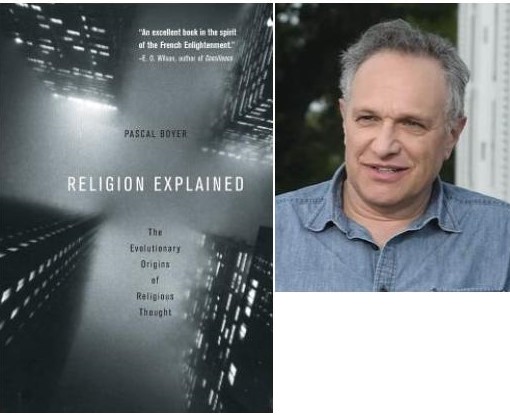 This post is an interlude, a necessary detour in our series on God and why people believe in God. In that series we have limited our focus to four fundamental mental tools or devices: naive physics, naive biology, agent detection, theory of mind. Before continuing that series I think it a good idea to backtrack and introduce another tool, this one is our moral intuition device. I quote passages from Pascal Boyer’s Religion Explained: The Evolutionary Origins of Religious Thought.
This post is an interlude, a necessary detour in our series on God and why people believe in God. In that series we have limited our focus to four fundamental mental tools or devices: naive physics, naive biology, agent detection, theory of mind. Before continuing that series I think it a good idea to backtrack and introduce another tool, this one is our moral intuition device. I quote passages from Pascal Boyer’s Religion Explained: The Evolutionary Origins of Religious Thought.
We all have moral intuitions (“My friend left her purse here, I must give it back to her”), moral judgements (“He should have returned his friend’s purse”), moral feelings (“He stole his friend’s purse, how revolting!”), moral principles (“Stealing is wrong”) and moral concepts (“wrong”, “right”). How is all this organized in the mind?
Two possible answers have long been proposed:
-
- the moral reasoning model: people seem to have some very general set of rules (e.g. “do not hurt others unless they hurt you”)
- the moral feeling model: many times people seem to simply have a feeling that an action is wrong and blameworthy, or that another action is praiseworthy
But most psychologists say that the opposition between the two models is overstated:
The emotions themselves are principled, they occur in a patterned way as the result of mental activity that is precisely organized but not entirely accessible to consciousness. If this is the case, then the explicit moral principles are optional. They are a possible interpretation of our common intuitions and feelings, rather than their cause.3
That note #3 points to The Moral Sense by James Q. Wilson. Here is an excerpt. Wilson is responding to the common idea that there is no such thing as a universal moral sense. He disagrees, suggesting that what is fundamental and universal is a moral disposition as distinct from specific rules:
I am reckless enough to think that many conducting this search have looked in the wrong places for the wrong things because they have sought for universal rules rather than universal dispositions. It would be astonishing if many of the rules by which men lived were everywhere the same, since almost all rules reflect the indeterminate intersection of sentiment and circumstance. Rules (or customs) are the adjustment of moral sensibilities to the realities of economic circumstances, social structures, and family systems, and one should not be surprised to find that the great variety of these conditions have produced an equally great variety in the rules by which they are regulated. There is a universal urge to avoid a violent death, but the rules by which men seek to serve this urge require in some places that we drive on the right-hand side of the road, in others on the left-hand side, and in still others that we give the right of way to cows. Infanticide, as we saw in the first chapter in this book, has been tolerated if not justified at some time and in some places, depending on the ability of parents to feed another child or cope with a deformed one. Even so, some universal rules have been discovered: those against incest, for example, or against homicide in the absence of defined excusing conditions.
Are There Moral Universals?
To find what is universal about human nature, we must look behind the rules and the circumstances that shape them to discover what fundamental dispositions, if any, animate them and to decide whether those dispositions are universal. If such universal dispositions exist, we would expect them to be so obvious that travelers would either take them for granted or overlook them in preference to whatever is novel or exotic. Those fundamental dispositions are, indeed, both obvious and other-regarding . . . . (Wilson)
Boyer makes an interesting application of this approach to our famous “golden rule”: Continue reading “Where Does Morality Come From? — a fifth mental tool”
